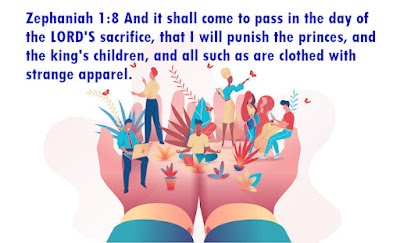Synopsis: Zephaniah
The writer
The prophet traced his lineage to King Hezekiah. His name means ‘Jehovah hides or hidden’. The meaning of his name is instructive as the day of the Lord (an event of great significance and very much emphasised in this book) is hidden from the majority of the people. If this coming event is taken seriously, many more people will be blessed.
Zephaniah’s ministry was in the days of King Josiah (BC 640-609) who was a good king in Judah. But the influence of Josiah’s predecessors Manasseh and Amon had led the people astray from the worship of Jehovah for about 50 years and its idolatrous effects continued to be felt during Zephaniah’s time.
Key verse
Zephaniah 1:8 And it shall come to pass in the day of the LORD'S sacrifice, that I will punish the princes, and the king's children, and all such as are clothed with strange apparel.
The day of the Lord is repeatedly mentioned in this book. It is the dreadful day that will happen in the whole world when the Lord will punish and remove all evils and thereafter established the millennium kingdom on earth. It is a worldwide event affecting every nation on earth.
The day of the Lord will be a dreadful day for those that have not put their trust in the Lord (Rev 6:15-17). The key verse highlighted the 3 categories of people in Israel that will be punished by God. It does not mean that others will be spared but that people in these categories are held in greater accountability as explained below.
Main Theme
Zephaniah uses a chiastic pattern to deliver his judgment message on the impending day of the Lord which will affects the whole world.
- Judgment on the world Zephaniah 1:2-3
- Judgment on Judah Zephaniah 1:4 to Zephaniah 2:3
- Judgment on Israel’s neighbors Zephaniah 2:4-15
- Judgment on Jerusalem Zephaniah 3:1-7
- Judgment on the all-nations Zephaniah 3:8 (Expository Notes of Dr. Thomas Constable)
The message of Zephaniah was addressed to the people in Judah. Although reforms were made by the good king Josiah, the evil practices of Manasseh and Amon were still entrenched in the people’s lifestyle (Zep 1:4-6). The chiastic pattern was used to reinforced the impartial judgment of God on all that worship the created and not the Creator. At the end of the book, Zephaniah reminded the people of God’s promise that He will establish His millennium kingdom in Jerusalem after the day of the Lord.
Spiritual and life lessons
In the key verse, the princes and the king’s children typify those in powers. The description of the people in strange or foreign apparel is clearly refers to wealthy people who can afford such fashionable clothes. It is a well-known fact that the common folks are significantly influenced by people in leadership, whether in the economic, social or political sphere.
During the time of Zephaniah, these people in power are influencing the common folks by setting a bad example and promoting evil which led the nation to deviate from God’s teachings. Therefore, privileges come with responsibility and those with great privileges will be judged in a more stringent standard.
Another group of people that will influence the common people are those in religious authority, the prophets and priests. It is no wonder therefore that Zephaniah listed out these people for rebuke as their unholy actions will lead the people away from God (Zep 3:4).
In today’s society, who are the princes, king’s children, wearer of strange apparels, prophets and priests? In present time, the people listed out for rebuke by Zephaniah may be called using contemporary titles. However, their responsibilities are still the same. Those who are in senior governmental offices, business leaders, teachers, pastors and church leaders are in these groups. It is very important that people in these categories act responsibly and not adversely affect those in their sphere of influence. I will also add that parents in relation with their young children are also in this category. Everyone in this category must all be cognizant of their actions if they have adverse spiritual influences on those that look up to them. In Galatians 2:11-14, Peter’s actions were contrary to his faith and Paul rebuked him as his actions have caused others to waver.
I heard of a true story of a boy who wanted to attend the church’s Sunday school when he was invited. During that time, he was only about 8-9 years old. Sadly, the parents objected and after several years, the child picked up some very bad habits. The parents, unable to teach the child, decided to send the child to the church’s Sunday school. They brought him to the church door but now the child refuse to get into the church. He told the parents it is too late for him. The parents were not acting responsibly when they had the powers to do it.
King Josiah, together with the prophets, tried to reform the people in Judah from their wayward ways and it appears to be an arduous task. The lesson is clear. Do not start any deviation from God’s words. Once it is deviated, it takes double the effort to return to God’s path.
Psalms 119:105
Thy word is a lamp unto my feet, and a light unto my path.
Psalms 119:106
I have sworn, and I will perform it, that I will keep thy righteous judgments.
With God’s blessings,
CL




Comments
Post a Comment